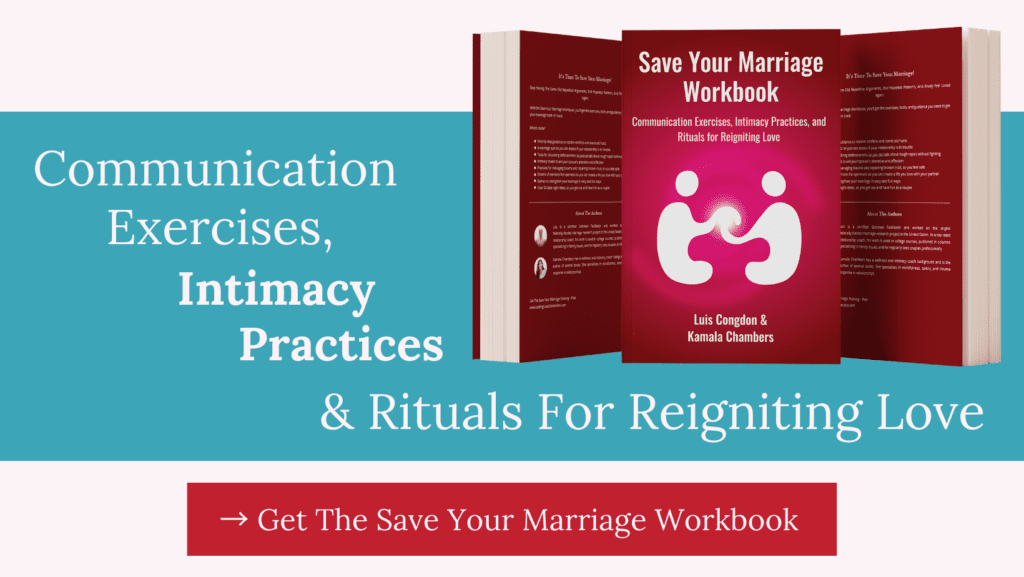Warning: Undefined array key "titleWrapper" in /home1/lastinj7/public_html/wp-content/plugins/seo-by-rank-math/includes/modules/schema/blocks/toc/class-block-toc.php on line 103
It can be complex to identify the difference between healthy vs. unhealthy relationships.
When you have feelings for someone, it’s difficult to look objectively at your relationship and acknowledge unhealthy behaviors or patterns.
Hopefully, this article will get you thinking about the characteristics of healthy versus unhealthy relationships relationships and spark you to reflect on your relationship.
Table of Contents
What makes a relationship healthy?

Healthy relationships are characterized by mutual respect, trust, open communication, and emotional support.
In a healthy relationship, you feel valued, understood, and cared for. You’re genuinely interested in each other’s thoughts, emotions, and experiences.
Healthy relationships are centered on open communication where you share concerns and needs while you’re within your window of tolerance.
Further, in healthy relationships, you encourage each other to thrive.
Supportive relationships enhance our mental health, spur us toward our dreams, and help us to become our best selves.
If you’re unsure whether your relationship is healthy, take our free relationship check-up.
What are the signs of a healthy relationship?

In a healthy relationship, there is a consistent display of healthy behaviors such as honest communication, turning towards each other with compassion and understanding, showing appreciation and affection, and having fun together.
While there may be negative aspects or things to work on in the relationship, there is an undercurrent of trust and respect.
Additionally, your actions and words show that you value the relationship and are committed to healthy behaviors while reducing harmful ones.
Common signs of healthy relationships
- Trust.
- Healthy communication.
- A sense of equality.
- A balance between time together and apart.
- Setting and honoring boundaries.
- Appreciation.
- Commitment.
Trust

Trust doesn’t happen automatically.
It builds over time as you find that you can depend on your partner to treat you respectfully and be there for you when you need support.
When there is a basis of trust, you and your partner feel safe to express yourselves openly without fear of judgment or criticism.
You share your thoughts, emotions, dreams, fears, and desires without worrying about how the other will react.
For example, when there is trust, you can bring up an unmet need in the relationship. Even though it may be uncomfortable, you know that your partner will be respectful and open to hearing your concerns.
Healthy communication

One of the keys to a successful marriage is healthy communication and regular check-ins.
Healthy communication involves expressing thoughts and emotions and responding with respect, compassion, and understanding.
When one partner speaks, the other listens attentively and validates their emotions and experiences.
When there is good communication, it allows you and your partner to feel seen, heard and understood. This kind of sharing builds emotional intimacy and trust.
Also, it ensures that both of you are getting your needs met.
Furthermore, healthy communication helps you navigate disagreements and conflicts without attacking or blaming each other.
Instead, you each share your perspectives, seek to understand each other and work together to find a solution.
Sense of equality

In healthy relationships, there is a sense of equality.
A sense of equality means that you have a say in decision-making and share in household responsibilities, tasks, or work.
Feeling like you are always picking up the slack and doing more than your share can breed resentment and negative emotions within the relationship.
Time together vs. time apart

A healthy relationship comprises a balance between time together and time apart.
Romantic relationships can be a wonderful addition to your life, but they’re not your whole life.
In healthy relationships, you maintain your own sense of identity and autonomy.
It’s easy to lose yourself in a relationship.
To combat this, take time to nurture your personal goals and interests outside of the relationship.
Time apart allows you to engage in individual hobbies and projects, practice self-care to support your physical and mental health, and enjoy time with friends and family members.
Having avenues of growth and joy helps you to return to your relationship feeling refreshed and revitalized.
Healthy boundaries

Another way to distinguish between healthy and unhealthy relationships is through boundaries.
Setting boundaries helps you and your partner feel safe within the relationship.
Examples of SETTING BOUNDARIES in relationships
- Requesting alone time.
- Telling your partner how you do or don’t like to be touched.
- Saying no to a family gathering.
- Letting your partner know the behavior you will or won’t tolerate during an argument.
When you and your partner communicate and respect each other’s boundaries, it creates emotional safety and deepens intimacy.
Appreciation

All human beings like to feel valued and recognized for their contributions.
In a healthy relationship, you and your partner regularly express gratitude and appreciation for each other.
Instead of fixating on each other’s flaws, you make a conscious effort to point out what is going well.
Showing appreciation for your partner can be as simple as thanking them for picking up the groceries.
Acknowledging your partner for their contributions lets them know that their efforts do not go unnoticed and fuels positive emotions in the relationship.
We recommend playing the Appreciation Game together as a way to boost your feelings of love and connection for each other.
Commitment

Lastly, a healthy and loving relationship is defined by commitment. To feel secure in the relationship, you need commitment.
When you and your partner are committed to the relationship, you prioritize spending time together. You recognize that interrupted time together is essential for keeping the relationship healthy.
Further, commitment to the relationship allows you to put in the time and effort required to address challenges as they arise.
When you and your partner are invested in the relationship and making it the best it can be, you seek professional support when challenges arise.
A relationship coach helps to make unhealthy relationships healthy again by transforming harmful dynamics and finding a path forward.
Working with an expert gives you a safe space to talk about repeated conflicts and gain new skills for connection, communication, and intimacy.
Want support with your relationship? Let’s chat. Book a complimentary couples consult.
What makes a relationship unhealthy?
Many different behaviors and patterns can occur within an unhealthy relationship.
Lack of trust

One of the main differences between healthy and unhealthy relationships is the presence of trust.
Since trust is so central in a partnership, a lack of trust can be destructive.
Trust can be broken due to something that has occurred in the relationship, such as cheating, lying, or breaking promises.
In other cases, there is no evidence that one person did anything to intentionally harm the other, but there is still a sense that they could be hiding things. For example, your partner may constantly check their phone, and you worry about who they’re talking to.
Sometimes, a lack of trust stems from past experiences or attachment wounds.
Regardless of the source, not trusting your partner leads to insecurity and a lack of safety within the relationship.
Control and manipulation

Another pattern that may occur in an unhealthy relationship is control or manipulation.
Maybe you’ve heard of the term gaslighting.
Gaslighting is a manipulation tactic used to exert power and control over another person. It causes someone to question their perceptions, feelings, and even their own sanity.
For example, one person may tell their partner they are being ‘too sensitive,’ belittle or dismiss their feelings, or deny the occurrence of previous events.
In such relationships, the person being gaslit may feel anxious or confused, like they know something is wrong but can’t pinpoint it.
Gaslighting is more than playing mind games; it is a form of emotional abuse that allows one person to maintain power over another.
Poor communication

Relationships quickly become unhealthy when there is a pattern of unhelpful or destructive communication.
Examples of an unhealthy communication style
- Criticizing or blaming one’s partner.
- Making hurtful remarks or name-calling.
- Defensiveness
- Withdrawing or shutting down.
- Yelling.
- Avoiding discussing important issues altogether.
Additionally, relationships can become unhealthy if one or both people are unwilling to take responsibility for their behavior or actions. Instead of listening to and validating their partner’s concerns, they blame the other person.
Refusing to take ownership of one’s role in the relationship hinders the opportunity to work as a team and move toward productive change.
What are the signs of an unhealthy relationship?

Knowing unhealthy signs in a relationship allows you to take action if you notice similar behavior in your relationship.
Warning signs of an unhealthy relationship
- Physical abuse.
- Emotional abuse.
- Sexual abuse.
- Infidelity.
- Lack of trust.
- Emotional neglect.
- Patterns of dishonesty.
- Controlling behaviors.
- Hatred in your relationship.
- Using manipulation to exert control.
- Possessiveness (such as refusing to let one’s partner spend time with friends or family).
- Narcissistic relationship pattern.
- Poor boundaries.
- Frequent arguing.
- Trauma bonding.
- Regular patterns of resentment, criticism, contempt, and defensiveness (Gottman’s Four Horsemen).
- Inability to express your true feelings.
- Lack of affection- you start to wonder if she or he still loves you.
- Lack of communication about important issues.
If you are experiencing domestic violence or believe you may be in an abusive relationship, seek help immediately from the Domestic Violence Hotline at 1-800-799-7233.
Additional ways to recognize an unhealthy relationship

Also, you can identify an unhealthy relationship by its negative impact on other areas of your life.
In unhealthy or abusive relationships, you may notice:
- Declined mental or emotional health or overall well-being.
- Diminished self-worth or low self-esteem.
- Increased isolation from friends or family.
Sometimes, it can be challenging to recognize that we’re in an unhealthy relationship when we are right in the middle of it.
We may rationalize unhealthy things or abusive behaviors by telling ourselves we’re being too sensitive or that we brought it on ourselves.
If you are unsure about some of the behaviors in your relationship, ask those who care about you for their opinion. What do they notice about the relationship?
If a close friend or family member expresses concern about unhealthy behavior within your relationship, it is worth paying attention to.
Being agreeable and avoiding fights: healthy or unhealthy?

Many people think that there should be no conflict in a healthy relationship.
They have bought into the belief that any instance of disagreement or tension is bad and should be avoided.
However, this is far from the truth.
There will inevitably be conflict even within the most loving and supportive relationships. The goal is not to prevent conflict altogether but to navigate disagreements in a healthy way.
There are some circumstances where it can be helpful for one partner to make a compromise to prevent an argument.
However, if one person constantly goes along with what the other wants to avoid conflict, it can harm the relationship.
Experts have found that when one or both partners avoid addressing issues in their relationship, it fuels disconnection, resentment, and relationship dissatisfaction.
One of the most important aspects of a partnership is feeling safe to share your inner world with each other.
Ultimately, healthy relationships allow the space for both individuals to speak their truth without feeling the need to bury their needs to ‘keep the peace.’
When to seek professional help if you have an unhealthy relationship
If you recognize unhealthy and abusive behaviors within your relationship, reach out for support immediately.
In the case of an abusive relationship or physical violence, a mental health professional can support you in navigating the next steps.
On the other hand, if you’re wondering if it’s possible to fix a broken relationship and make an unhealthy dynamic healthy again, the answer is yes.
With the support of a couples coach, you can address unhealthy patterns within your relationship and move toward healthier ways of relating.
We’ll help you to develop practical communication skills that allow you both to feel heard and understood. Additionally, we’ll help you navigate conflict without causing damage to your relationship.
At Lasting Love Connection, we’re here to help you address unhealthy behaviors in your relationship.
To get started, book a complimentary couples consult.







0 Comments